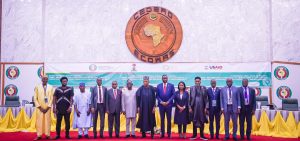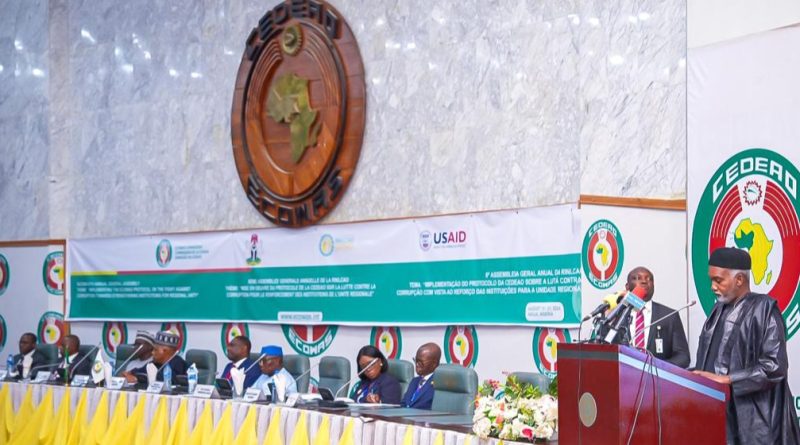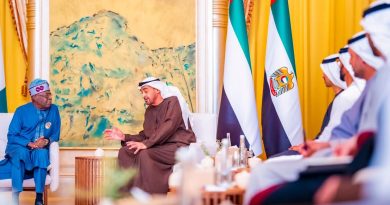Combating Corruption In Africa through Unity…
Oru Leonard
Nigerian Minister of Foreign Affairs , Honourable Yusuf Maitama Tuggar at the 6th Annual General Assembly of the Network of Anti-Corruption Agencies in Africa (NACIWA), has declared that Corruption is a cancer that has ravaged our societies, undermining institutions, and exacerbating poverty and inequality.
“It is a challenge that transcends borders, demanding collective action, rooted in shared responsibility, mutual accountability, and fairness”, he added.
The Minister’s words struck a chord, echoing the experiences of nations across Africa. Nigeria, too, had felt the devastating effects of corruption, its people bearing the brunt of this scourge.
Amidst the dire reality, a glimmer of hope emerged as ihe Minister emphasized the importance of regional and global cooperation in combating corruption, urging nations to unite in their quest for a corruption-free world.
Through shared knowledge, resources, and expertise, the Minister envisioned a future where corruption was eradicated, and Africa could thrive. The crowd was electrified, inspired by the Minister’s passion and determination.
The fight against corruption had just gained a newfound momentum, fueled by the collective resolve of Africa’s anti-corruption agencies. Together, they would forge a path towards a brighter, corruption-free future.
The Minister’s speech had been a call to action, a reminder that the fight against corruption required collective effort and cooperation.
He noted that the vision of a united Africa to fight against corruption and illicit financial flows through the African Continental Free Trade Area (AfCFTA) is a game-changer, with its potential to create a unified market and boost coordination among nations.
But the Minister emphasized that regional cooperation was only half the battle. The global nature of financial systems demanded a global response. The United Nations Resolution on Tax Cooperation, championed by Nigeria, was a landmark initiative that called for improved international tax cooperation, greater transparency, and the elimination of safe havens.
“It is time to stop providing safe havens for ill-gotten funds. We must coordinate our efforts to close loopholes, enforce regulations, and repatriate stolen assets”, he stated as the audience erupted into applause. He then called for global partnerships to ensure that national resources were returned to their rightful jurisdictions.
The Minister’s vision was clear: a world where stolen assets could be tracked and shut down, where advanced technology was used to combat corruption, not perpetuate it. The audience was left with a sense of hope and determination, knowing that the fight against corruption was a collective responsibility that required global cooperation and commitment.
While developing countries are left to face the consequences. This is a clear case of double standards, and it undermines the trust and cooperation needed to combat corruption globally.
The Minister’s words struck a chord, echoing the frustrations of many developing nations. The audience nodded in agreement, recognizing the need for a more balanced approach to combating corruption.
The example of Binance’s exploits in Nigeria served as a stark reminder of the challenges faced by developing nations. The use of crypto-currency to manipulate exchange rates and launder proceeds of corruption was a scourge that required a unified response.
With renewed determination, the assembly pledged to strengthen their collaboration, sharing best practices and expertise to combat corruption in all its forms. The Minister’s words had ignited a sense of purpose, reminding them that their individual efforts were part of a larger, global movement.
The Minister’s call to action would not be forgotten, and the assembly would strive to work together to create a world where resources were used for the benefit of all




